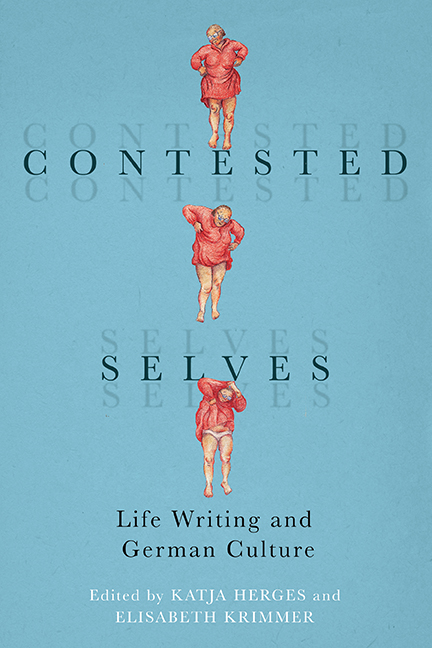Book contents
- Frontmatter
- Contents
- Acknowledgments
- Introduction
- Part I Women’s Life Writing, Female Subjectivity and Agency
- Part II Modern Life Writing and Aesthetics
- Part III Trauma and Vergangenheitsbewältigung
- Part IV Transnational and Transgenerational Life Writing in Contemporary Germany
- Bibliography
- Notes on the Contributors
- Index
8 - Voices from an “Extinct Species”: Narrative Responses to Trauma in German Jewish Memoirs
Published online by Cambridge University Press: 26 May 2022
- Frontmatter
- Contents
- Acknowledgments
- Introduction
- Part I Women’s Life Writing, Female Subjectivity and Agency
- Part II Modern Life Writing and Aesthetics
- Part III Trauma and Vergangenheitsbewältigung
- Part IV Transnational and Transgenerational Life Writing in Contemporary Germany
- Bibliography
- Notes on the Contributors
- Index
Summary
THE GERMAN JEWISH WOMEN who spent many of their later years writing memoirs about their lives during and after the rise and fall of Nazi Germany seldom expected to publish their work. They wrote for their children and grandchildren and for the generations to come, but mostly they wrote for themselves, in order to work through their traumatic pasts, to make sense of their choices, and to confront their losses and regrets from a temporal and geographical distance. Hundreds of these personal statements now lie in archives, silent like their authors. This essay seeks to amplify the voices of these women because they tell an important story both individually and collectively. Amplification implies, primarily, a psychological, literary, and theoretical understanding. I choose a descriptive stance rather than a tribute to the memoirists’ loss. The memoirists were witnesses to personal and collective trauma in 1930s and 1940s Germany; as literature, however, their memoirs demonstrate the ways that life writing acts as a response to trauma: that is, as a reconstitution of the self and as a form of pursuing and attaining moral meaning and cultural purpose.
In the following I focus on the memoirs of five women: Agnes Weiler Wolf, Alice Oppenheimer, Margot Bloch-Wresinski, Bertha Katz, and Charlotte Landau-Mühsam. As of 2020, only the memoirs of Charlotte Landau-Mühsam have been published. The stories of these women are only a few selected from among the dozens I have collected from the archives of the Leo Baeck Institutes in Jerusalem and New York. These five memoirs stand out owing to their authors’ self-reflective attention to their own emotional states and their careful consideration of how their pasts continue to shape their present lives.
Agnes Weiler Wolf completed her English-language memoir, “Notes from an Extinct Species,” in New Paltz, New York, in 1992—almost six decades after her family was forced to flee Germany. In her memoir Weiler Wolf tells the story of her family's history in southern Germany with a focus on their experiences under Nazi rule. Alice Oppenheimer's memoir, “A Few Days of My Life,” was written in English between 1963 and 1965 in Jerusalem.
- Type
- Chapter
- Information
- Contested SelvesLife Writing and German Culture, pp. 167 - 188Publisher: Boydell & BrewerPrint publication year: 2021



